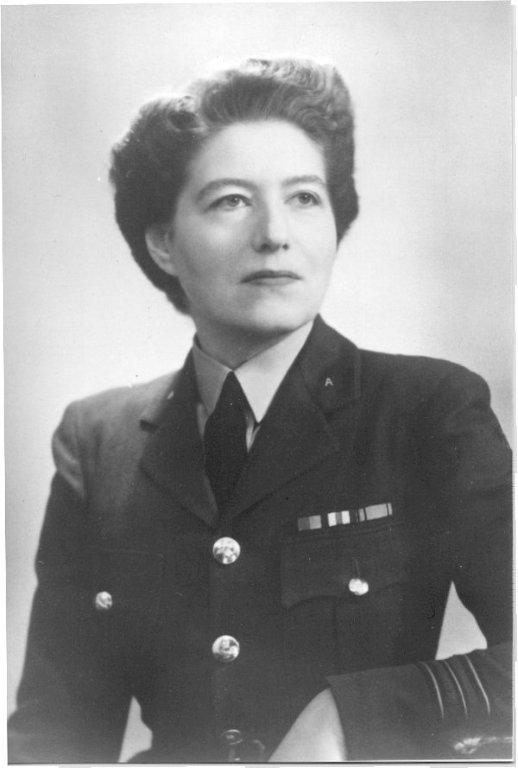
Vera Atkins
Vera Atkins was the head of the French Section of SOE (Special Operations Executive).
She was born Vera Maria Rosenberg to a Jewish family in Romania in 1908. Upon her father’s death, the family emigrated to London and Vera anglicised her mother’s maiden name and became Atkins. Her pro-British views saw her recruited by British security and she was part of the team that helped evacuate Poland’s Enigma code breakers. She was posted to work in the Netherlands however, when the Nazis invaded, Vera was forced to escape back to England with the help of the Resistance.
Back in England, she became SOE assistant to French Section and served in a civilian capacity until in August 1944. Vera was commissioned as a Flight Lt in the WAAF, before being made head of the French Section.
This position saw her oversee the recruitment and deployment of agents into France. In a job known as ‘Housekeeping’, she was responsible for 37 female agents. The agents were trained to use a unique protocol when speaking to London, but signs that the circuits in France had been broken were missed. Vera was believed to have ignored clues that the radios were now in German hands, resulting in 27 agents being arrested and killed.
Perhaps guilt led her to search diligently for the missing agents after the war. There were still 51 missing. It was discovered that 118 had disappeared and of those 117 had been killed. As part of a War Crimes unit she was able to confirm the agent’s deaths and thus give them a grave
The Special Operations Executive was a British World War II organisation whose purpose was to conduct espionage, sabotage and reconnaissance in occupied Europe against the Axis power and to aid local resistance groups. Very few people knew of the group’s existence, those who did often referred to it as ‘The Baker Street Irregulars’ after the location of its London headquarters. It was also known as “Churchill’s Secret Army” and the “Ministry of Ungentlemanly Warfare”.
The IBCC has recorded and preserved 100’s of first-hand accounts of life during the War, they are available for free for everyone on the IBCC’s Digital Archive.
Like this blog? Visit the IBCC’s Blog Space to read more.